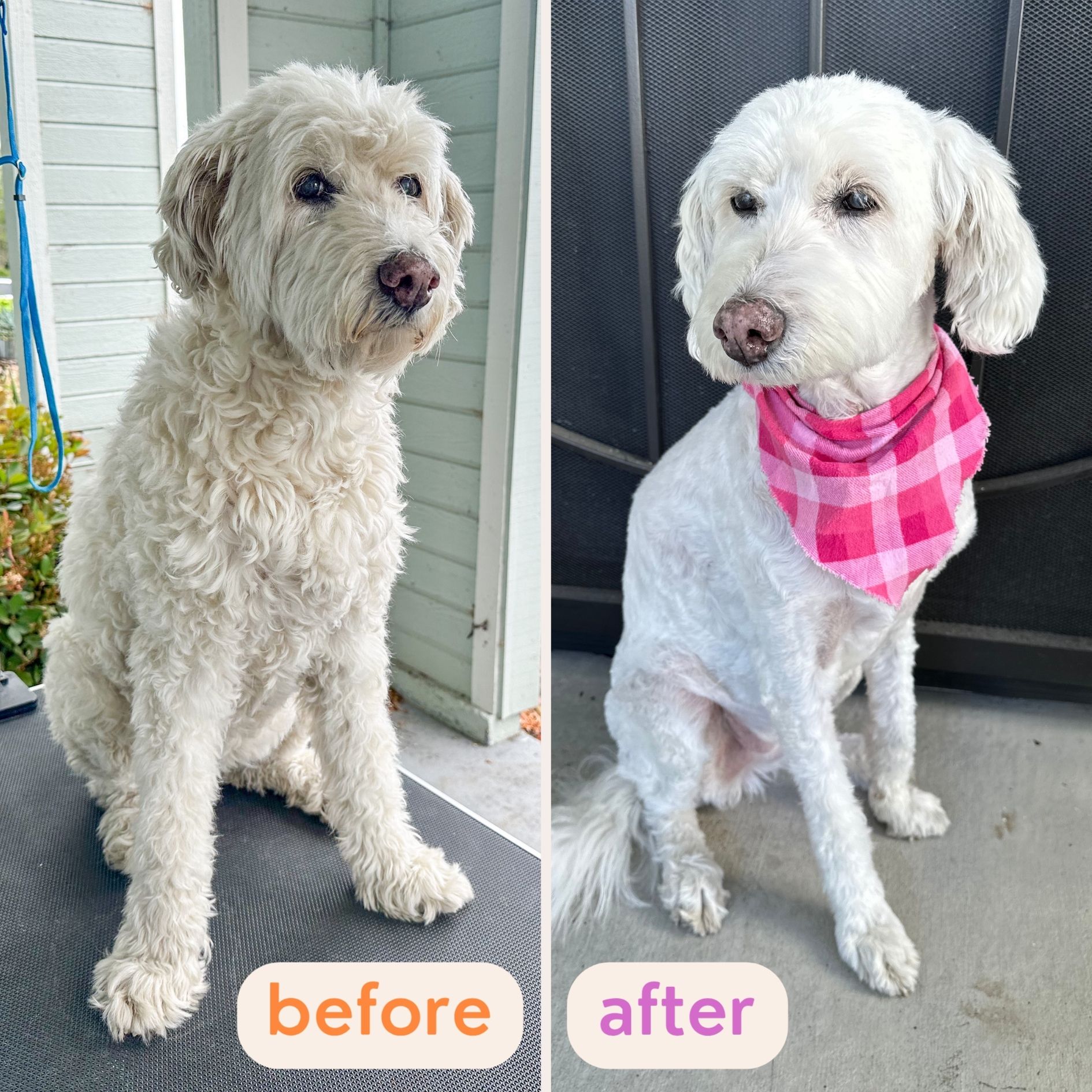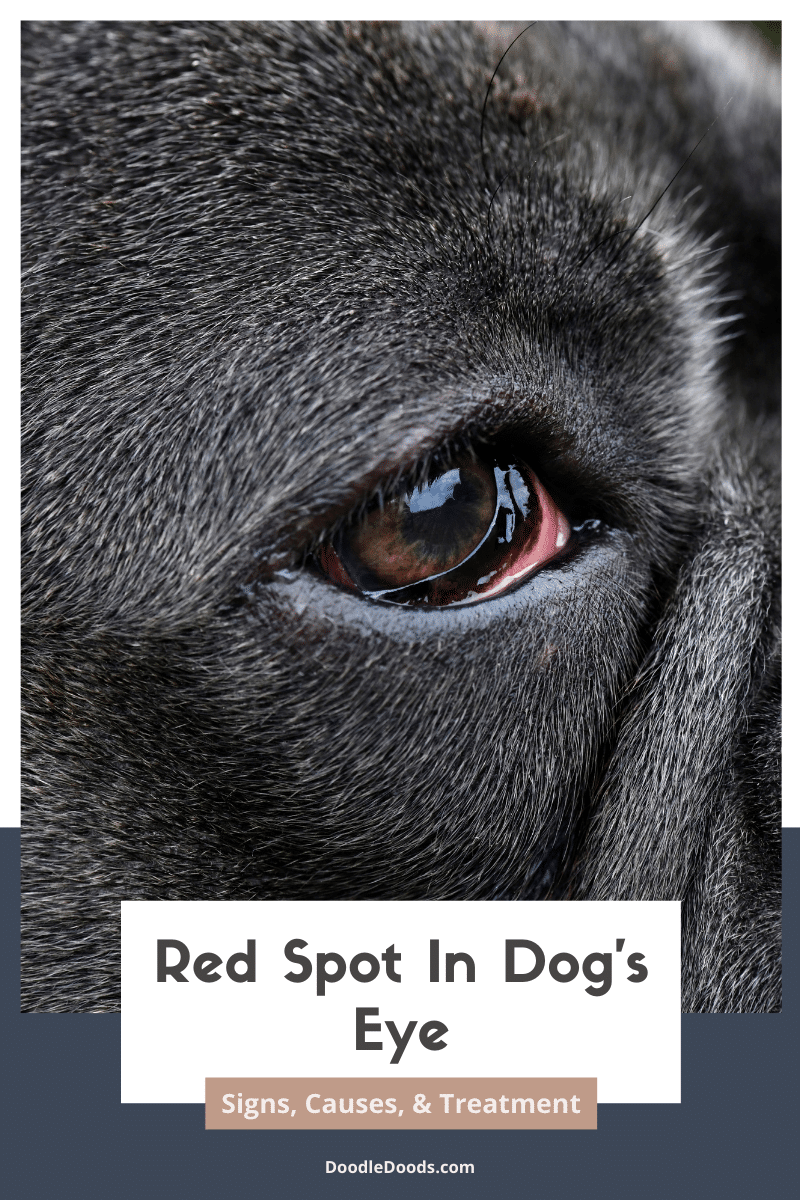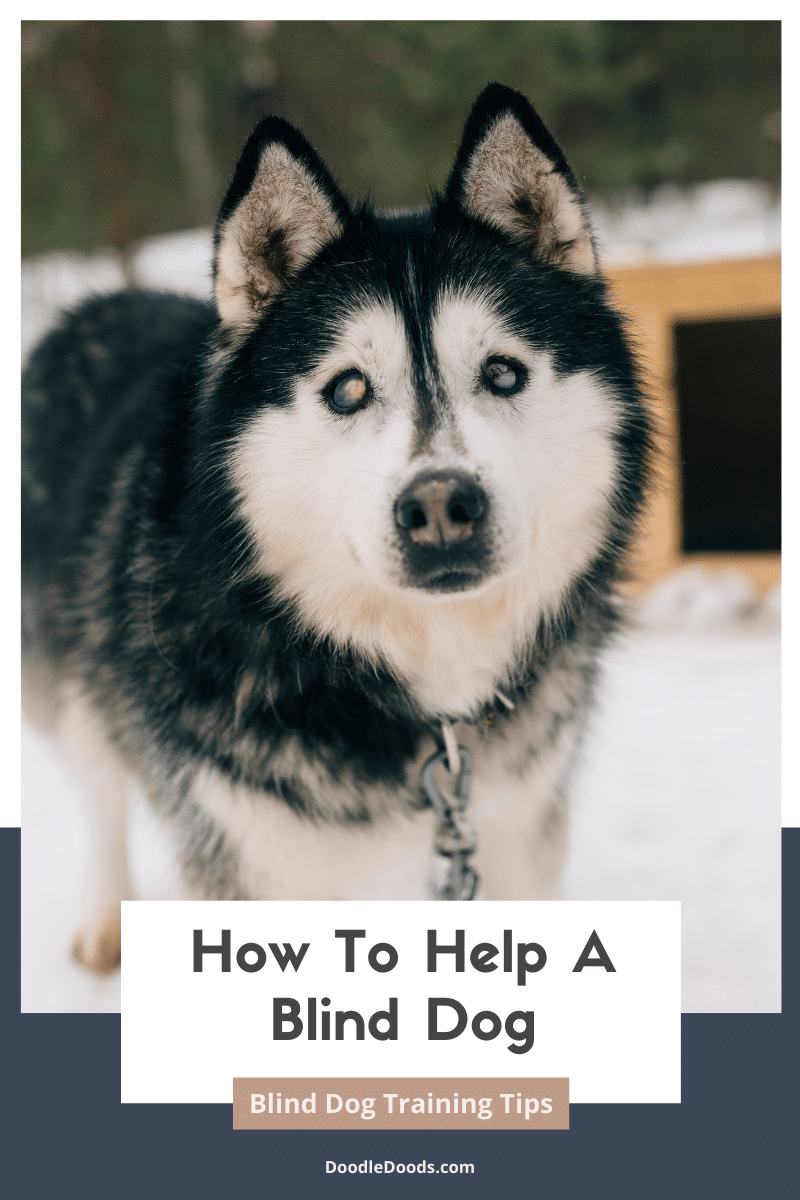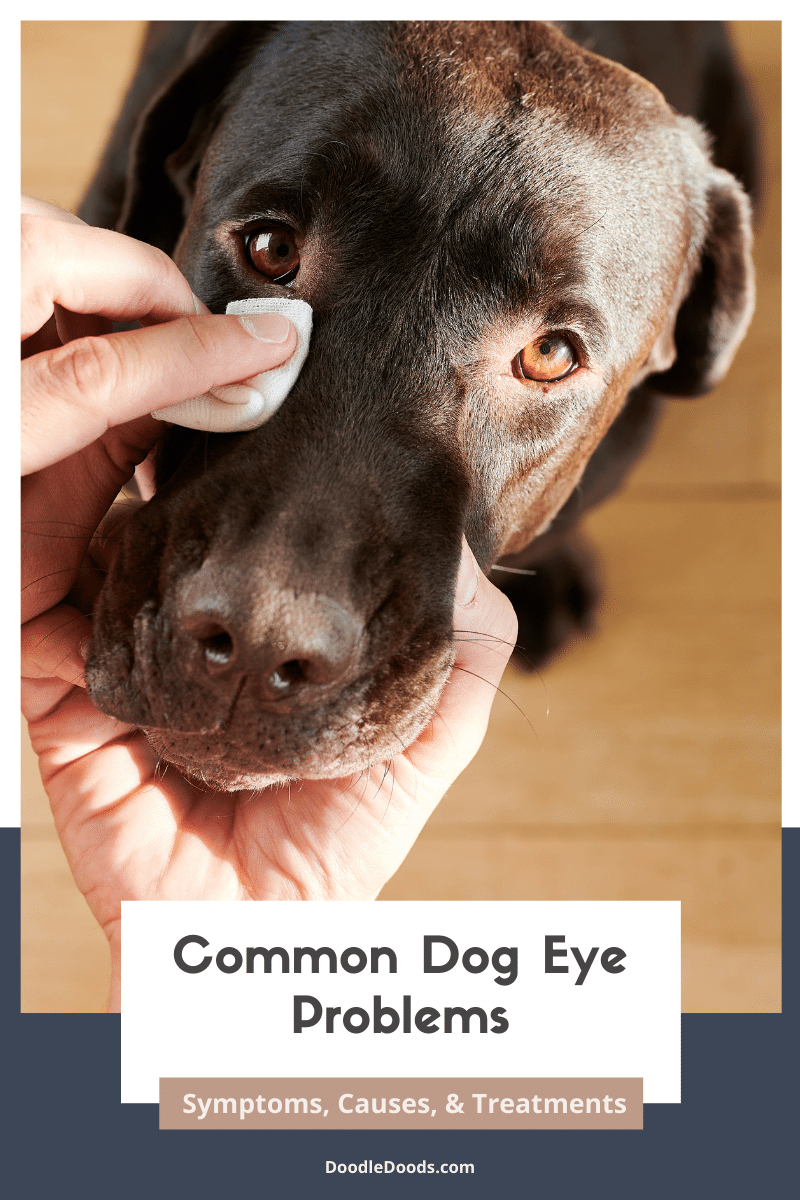What if, one day, you were playing with your pup, and you happened to notice that one of their eyes was moving in a different direction from the other? Chances are you’d be pretty concerned. Eye problems, after all, can indicate the presence of some pretty severe issues… in people anyway, but what about in dogs? If you’ve found yourself in exactly this situation, where one of your pet’s eyes suddenly looks a little off-center, you’re in the right place. In this article, we aim to address the question, ‘Why does my dog suddenly have a lazy eye?’ so you can know what might lie behind the problem as well as what to do about it.
Table of Contents
- What Exactly Is A Lazy Eye?
- Why Does My Dog Suddenly Have a Lazy Eye?
- What To Do About Your Dog’s Lazy Eye
- Frequently Asked Questions On Why Does My Dog Suddenly Have A Lazy Eye
What Exactly Is A Lazy Eye?
Strabismus, commonly known as a ‘lazy eye,’ is a condition that affects the muscles around the eyes. In actuality, it’s rare in most breeds of dogs, although there are certain ones that are a little more susceptible (we’ll chat about that a little later on). However, if your pup does happen to have it, for whatever reason, you’ll notice that instead of their eyes moving in unison as they usually do, one of them will seemingly be pointed in a different direction and may even be focused on a different thing.

In fact, dogs can suffer from strabismus in a single eye or even in both of them. With the latter, you might notice their eyes rolling towards their nose, giving them a cross-eyed appearance, away from the nose or either upwards or downwards. While this be more than a little alarming, strabismus doesn’t always have to be a cause for concern.
Why Does My Dog Suddenly Have a Lazy Eye?
Anything to do with the eyes in your pet may seem like a huge deal. We get it. Likely your mind will automatically fly to the worst-case scenario but do try not to panic. Typically speaking, even unfixable strabismus doesn’t in itself cause your dog any pain or discomfort. That being said, it’s a good idea to promptly get your pet down to the vet for treatment. Even with the information we are about to provide, never make assumptions when it comes to eye issues. Diagnosis needs to be done by a professional.
With that in mind, just for your information, here are some of the more common causes of a lazy eye in dogs:
Genetics
Weakened eye muscles can be an inherited trait. As such, a lazy eye may well be present from birth, or it could develop later in your dog’s life. These kinds of hereditary eye issues are more seen in certain breeds, such as Pugs, Boxers, Boston Terriers, Akitas, Golden Retrievers, Shar Pei, and Irish Wolfhounds. So if your Dood has any of this kind of ancestry, genetics could be a factor. That being said, mixed-breed dogs are less prone than pedigrees to hereditary issues, so then again, it might not be.
Injury
Trauma to either the eyes or the head can be dangerous, and it’s good to be aware of when this has happened to your pal for various reasons. A lazy eye can be a symptom of this and could especially indicate a fracture of the zygomatic bone, which is that bit right under the eye at the top of their cheeks. Sometimes after a minor accident, the eye might correct and realign itself as your four-legged friend heals, but even so, it’s still a good idea to get them checked out to ensure that there is no other, more-longer-lasting damage.
Vestibular Problems
As in humans, the vestibular system in dogs takes care of balance. It’s basically what’s referred to as the inner ear. A lazy eye could be a symptom of an issue here. This can be brought on by infection, trauma or injury, tumors, or hyperthyroidism, among other things. Sometimes vestibular problems just happen to older dogs as their body ages. If this is the root cause of your hound’s trouble, you’ll likely notice other balance issues linked with the inner ear, such as falling, head tilting, general wobbliness, and/or circling.
Nervous System Dysfunction
Another possible issue that could manifest as either or both of your dog’s eyes being off-center is problems with their nervous system. This could be any number of things, including an injury, a tumor, fluid buildup in the brain, inflammation due to illness, or even inflammation due to your pup’s own immune response. Unless you have already spoken to your vet about a condition your dog has that could have eye issues as a side effect, the best thing you can do is take them for a checkup, as this could be very serious.
What To Do About Your Dog’s Lazy Eye
We’ve already mentioned taking your pet to the vet a few times – and we’re going to reiterate that again here. Eye problems, while not always serious, are not to be ignored. Anything to do with this part of the body should be dealt with immediately, especially if it comes on suddenly. A vet can diagnose your dog and provide you with the treatment options, which may well include:
No Treatment At All
In the case of dogs with a lazy eye because of genetic issues, especially those that have had this problem since birth, your vet might conclude that it is not negatively impacting their life. As such, they won’t really require any form of treatment. In this case, it’s good to be aware, though, of the slight issues your pup may face, such as vision and distance problems, but otherwise, all you’ll really need to do is be sure that the problem doesn’t get any worse. If it does, your vet might then go on to recommend something further.
Eye Movement Exercises
With a weak eye that’s again caused by genetics, there are certain exercises you can do to strengthen the muscles there and reduce or even eliminate strabismus. These often consist of you having your pup following your hand as you move it around – usually with a treat or toy to keep their attention. Be sure not to tease your pooch for too long; otherwise, they’ll tire of the game. There are no guarantees with this method, by little by little, day by day, you may start to see an improvement in your dog’s weaker eye.
Cleaning Your Dog’s Ears
If your pet’s eye problem is linked to issues with the vestibular, especially if it’s an ear infection, you might be able to solve the issue with ear cleaning. Just be sure to proceed with caution, as ears are delicate things, especially when they are infected, inflamed, and sore. Pick out the right kind of ear cleaner, be sure to use something that’s specifically designed for dogs (you should never use products intended for people on your canine friend), and use as instructed – never with a Q-tip, as this can make the problems worse.




Medication or Surgery
If the problem is a little more serious, say in the case of illness, disease, nervous system dysfunction, or a tumor, your vet might need to intervene by prescribing medication such as an anti-inflammatory, or your pup might need surgery. In this case, the quicker you get your pooch seen, the better for them. Recovering times will obviously vary depending on the type and severity of your pup’s condition. Your vet will be able to give you a better indication of what to expect depending on your dog’s specific situation.
Frequently Asked Questions On Why Does My Dog Suddenly Have A Lazy Eye
It’s relatively easy to spot the symptoms of a lazy eye in your pet. You’ll notice right off that the eyes are not moving in unison as usual. Your pup will have one eye pointing in one direction and the other in another. Once you have established that all is not well, pay attention to any other observable symptoms to help the vet make a speedy diagnosis. These can include lethargy, balance issues, signs of pain, vomiting, or diarrhea.
While tiredness, stress, or anxiety may exacerbate symptoms of an already present lazy eye (this may even cause you to notice that your dog has one when you haven’t before), it’s highly unlikely that tiredness alone would be responsible for the presence of this condition. Either way, you should get your pet down to the vet as quickly as possible if you notice that either or both of their eyes do suddenly seem a little off-center.
Strabismus in dogs, while looking distressing, typically causes no physical pain or discomfort in itself. In fact, your dog will likely be unaware of the problem at all. That being said, some of the underlying factors that could bring on the condition could be extremely painful for your pup. That’s why it’s crucial to get them checked out as soon as you possibly can after noticing the problem.
As a lazy eye has many possible causes, it’s impossible to name a single way to get rid of one. In the case of a hereditary issue, it might simply be that the problem is here to stay. Otherwise, your vet may need to prescribe medication, or, in the most extreme cases, surgery may well be necessary to correct a muscle issue or remove a tumor.
Sometimes when a lazy eye is caused by minor trauma to the area, the resultant inflammation or the dog’s immune system response to a disease, it will resolve itself as your pet heals. Also, in some cases where the cause is genetic and the problem is slight, muscle exercises can be used to strengthen the weakened muscles. But you can’t assume that either of these will be the case without an expert opinion.
Final Thoughts
When it comes to your pets, any sign of a medical problem can be extremely distressing. The problem is made that much harder by them being unable to tell you what is wrong or how they are feeling. That being said, issues linked to eyes can seem that much worse because it’s difficult to know just what might be causing the problem or how to go about fixing it. If your wondering why does my dog suddenly have a lazy eye? Here you can find some of the common reasons and possible treatments here, our advice with this kind of issue is to always and speedily seek professional help.
Want to Learn
DIY Doodle Grooming?

 “Every concern and question I had now has clear, practical solutions.” – Paula D.
“Every concern and question I had now has clear, practical solutions.” – Paula D.
 “These lessons have provided tremendous amounts of information.” – Steve B.
“These lessons have provided tremendous amounts of information.” – Steve B.
 “Buy the course and complain about how easy it is!” – Chris S.
“Buy the course and complain about how easy it is!” – Chris S.
Learn How To Groom Your Doodle At Home…
Safely…And Without Confusion:







